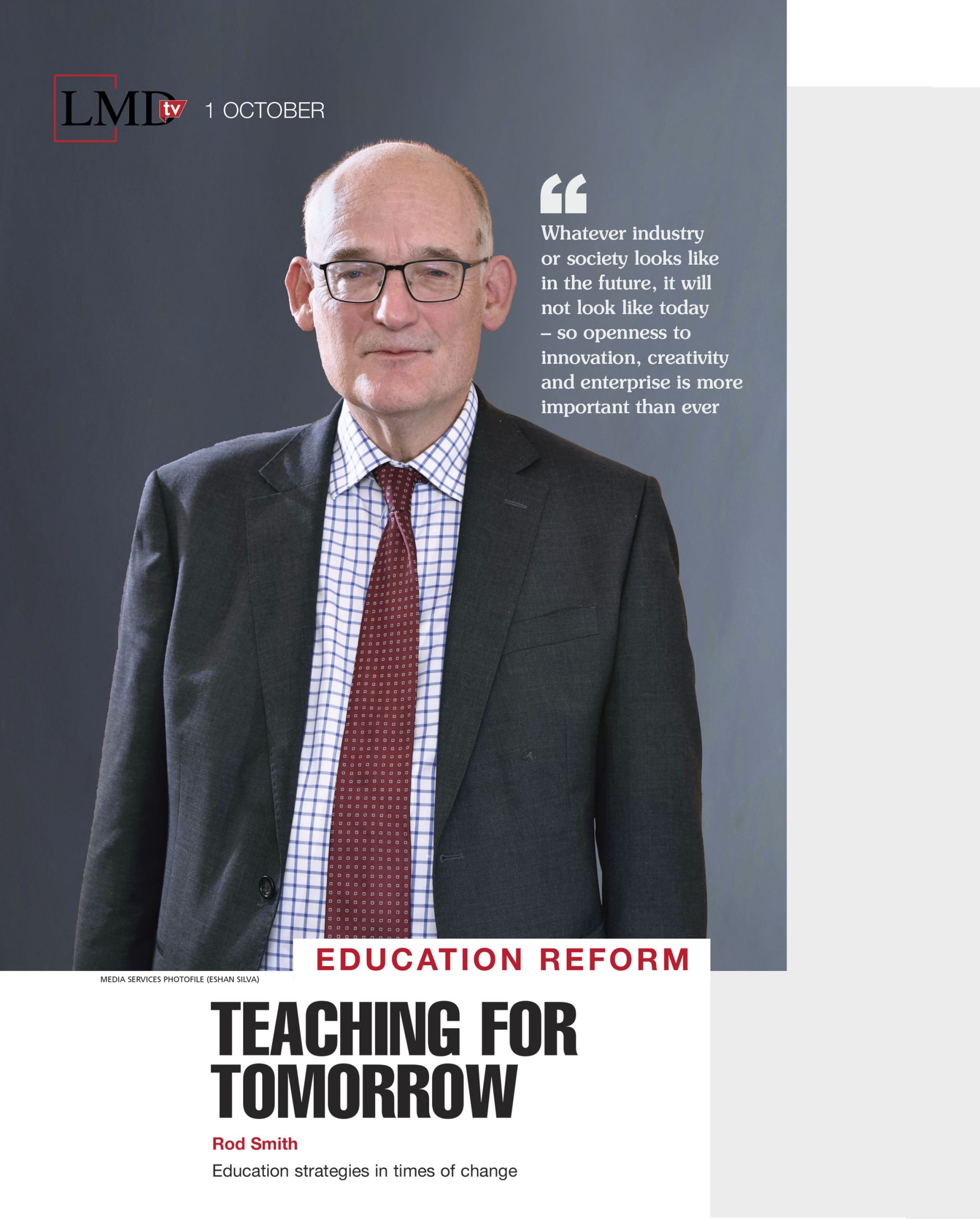LMDtv 4

“Sri Lanka is an important country for us; it is one where we want to do much more work,” stated the Group Managing Director of Cambridge University Press and Assessment Rod Smith, during his recent discussion on LMD’s weekly digital show.
He was in Colombo to launch a major global consultation report on education and open the organisation’s new office. Smith explained that preparing students for tomorrow has become increasingly complex.
“Education has always been about preparing young people for the future. But with technology, climate change and shifting geopolitics, we must ask if our systems are developing learners who are ready,” he remarked.
Cambridge surveyed thousands of schools worldwide for the new report. “Fifty two percent of teachers and learners told us they feel anxious about the future, and 48 percent questioned whether the curriculum they follow truly prepares them for life,” Smith revealed.
He added that this uncertainty “pushed us to examine what needs to change.”
Curriculum reform is central to Cambridge’s response, Smith assured. “We review our curriculum on an ongoing basis, which is unusual compared to many national systems. But the urgency now feels greater than ever. Foundational knowledge remains vital but the curriculum must also be explicit about skills – what learners can do, and how they think and engage with knowledge.”
Teachers and schools remain key drivers of progress. “Teachers are the linchpin of education,” Smith asserted, and elaborated that they must “adapt their methods while schools work closely with parents and learners, who are becoming very demanding about what they expect.”
This demand is reshaping education globally.
“During our consultations, we had more responses from learners than teachers,” Smith disclosed. “Students are exploring micro credentials, short courses and online learning. These offer flexibility but raise questions about quality and coherence. They must be part of a coherent curriculum – not replace it,” he added.
In South Asia, education continues to be highly valued.
“We now have over a thousand schools in South Asia using the Cambridge curriculum and the number is growing,” Smith stated, remarking that “parents and students are looking for choice – whether through global curricula, entrepreneurship programmes or climate change education.”
Climate education is particularly urgent, he stressed: “South Asia will be among the most impacted regions by the climate crisis. We are working to empower young people with knowledge and tools while also helping them cope with the anxiety this crisis is creating.”
Teacher development is another priority.
“We are investing heavily in training, including pre-service programmes. Eighty eight percent of teachers say that student attention spans are getting shorter, making self-management one of the most critical skills to develop,” he noted.
Communication skills also stood out and as Smith pointed out, “South Asian students excel in reading and writing, but often struggle with speaking and listening. Yet, interpersonal skills such as collaboration, creativity and even the ability to disagree are what the future will demand.”
With an eye on the future, Smith emphasised the role of schools as the anchor of learning. “The classroom must remain the place where young people grow, learn collaboration and build resilience. Although technology can support that, it can’t replace the human element,” he observed.
For him, lifelong learning begins early. “The habits formed in the first years of education last a lifetime,” he explained, adding that “leaving learners with confidence, agency and the sense that they can cope with whatever life throws at them is the essence of being future ready.”
Smith concluded by emphasising that “whatever industry or society looks like in the future, it will not look like today – so openness to innovation, creativity and enterprise is more important than ever.”

